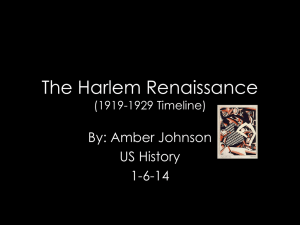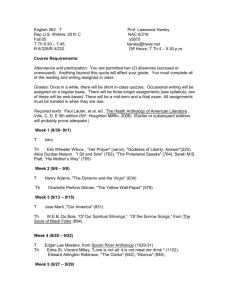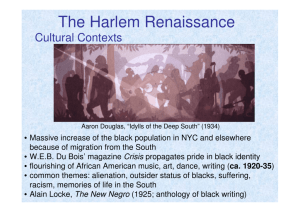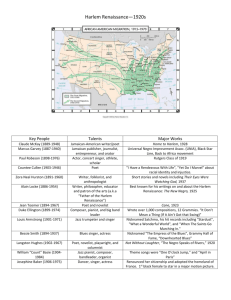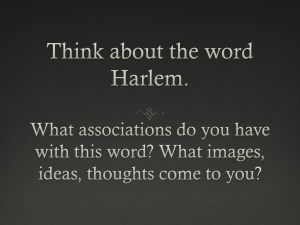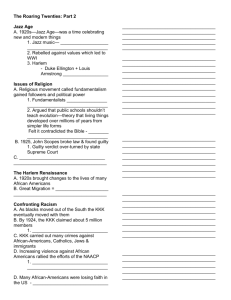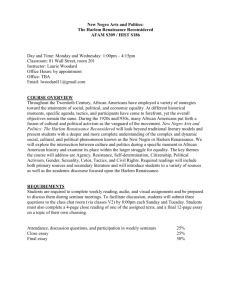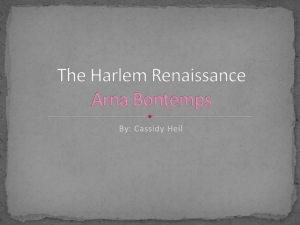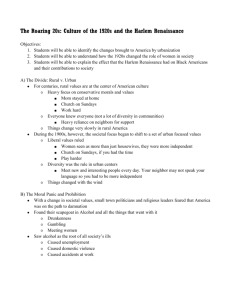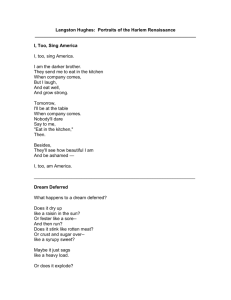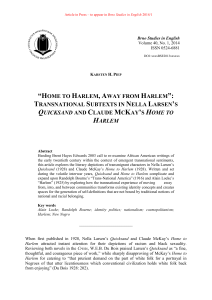Hughes_Heyday in Harlem.doc
advertisement
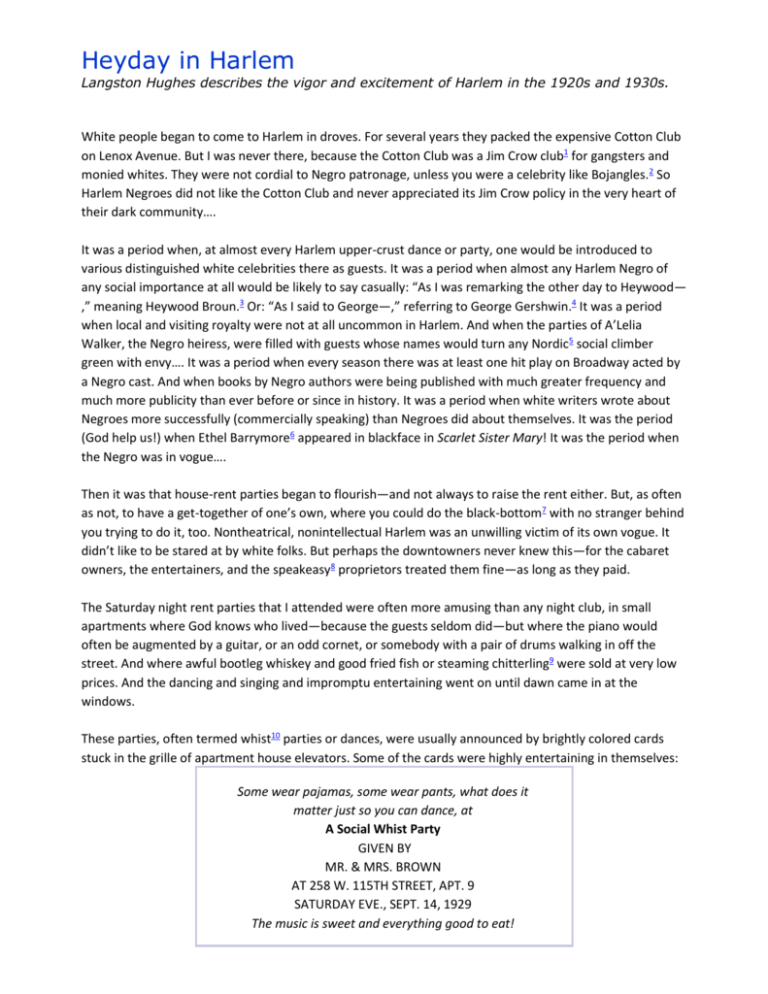
Heyday in Harlem Langston Hughes describes the vigor and excitement of Harlem in the 1920s and 1930s. White people began to come to Harlem in droves. For several years they packed the expensive Cotton Club on Lenox Avenue. But I was never there, because the Cotton Club was a Jim Crow club1 for gangsters and monied whites. They were not cordial to Negro patronage, unless you were a celebrity like Bojangles.2 So Harlem Negroes did not like the Cotton Club and never appreciated its Jim Crow policy in the very heart of their dark community…. It was a period when, at almost every Harlem upper-crust dance or party, one would be introduced to various distinguished white celebrities there as guests. It was a period when almost any Harlem Negro of any social importance at all would be likely to say casually: “As I was remarking the other day to Heywood— ,” meaning Heywood Broun.3 Or: “As I said to George—,” referring to George Gershwin.4 It was a period when local and visiting royalty were not at all uncommon in Harlem. And when the parties of A’Lelia Walker, the Negro heiress, were filled with guests whose names would turn any Nordic5 social climber green with envy…. It was a period when every season there was at least one hit play on Broadway acted by a Negro cast. And when books by Negro authors were being published with much greater frequency and much more publicity than ever before or since in history. It was a period when white writers wrote about Negroes more successfully (commercially speaking) than Negroes did about themselves. It was the period (God help us!) when Ethel Barrymore6 appeared in blackface in Scarlet Sister Mary! It was the period when the Negro was in vogue…. Then it was that house-rent parties began to flourish—and not always to raise the rent either. But, as often as not, to have a get-together of one’s own, where you could do the black-bottom7 with no stranger behind you trying to do it, too. Nontheatrical, nonintellectual Harlem was an unwilling victim of its own vogue. It didn’t like to be stared at by white folks. But perhaps the downtowners never knew this—for the cabaret owners, the entertainers, and the speakeasy8 proprietors treated them fine—as long as they paid. The Saturday night rent parties that I attended were often more amusing than any night club, in small apartments where God knows who lived—because the guests seldom did—but where the piano would often be augmented by a guitar, or an odd cornet, or somebody with a pair of drums walking in off the street. And where awful bootleg whiskey and good fried fish or steaming chitterling9 were sold at very low prices. And the dancing and singing and impromptu entertaining went on until dawn came in at the windows. These parties, often termed whist10 parties or dances, were usually announced by brightly colored cards stuck in the grille of apartment house elevators. Some of the cards were highly entertaining in themselves: Some wear pajamas, some wear pants, what does it matter just so you can dance, at A Social Whist Party GIVEN BY MR. & MRS. BROWN AT 258 W. 115TH STREET, APT. 9 SATURDAY EVE., SEPT. 14, 1929 The music is sweet and everything good to eat! Almost every Saturday night when I was in Harlem I went to a house-rent party. I wrote lots of poems about house-rent parties, and ate thereat many a fried fish and pig’s foot—with liquid refreshments on the side. I met ladies’ maids and truck drivers, laundry workers and shoeshine boys, seamstresses and porters. I can still hear their laughter in my ears, hear the soft slow music, and feel the floor shaking as the dancers danced. Langston Hughes from “When the Negro Was in Vogue” Harlem Langston Hughes Here on the edge of hell Stands Harlem— Remembering the old lies, The old kicks in the back, The old “Be patient” They told us before. Sure, we remember. Now when the man at the corner store Says sugar’s gone up another two cents, And bread one, And there’s a new tax on cigarettes— We remember the job we never had, Never could get, And can’t have now Because we’re colored. So we stand here On the edge of hell In Harlem And look out on the world And wonder What we’re gonna do In the face of what We remember.
